人教版高中英语必修四 unit4 body language 知识点 (共26张PPT)
文档属性
| 名称 | 人教版高中英语必修四 unit4 body language 知识点 (共26张PPT) | 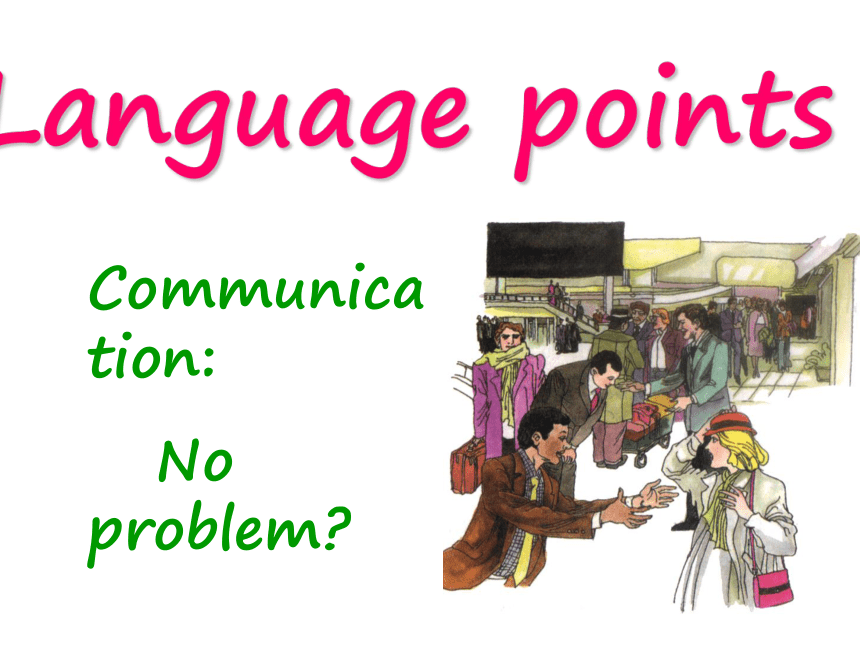 | |
| 格式 | ppt | ||
| 文件大小 | 1.1MB | ||
| 资源类型 | 教案 | ||
| 版本资源 | 人教版(新课程标准) | ||
| 科目 | 英语 | ||
| 更新时间 | 2020-11-15 17:52:19 | ||
图片预览

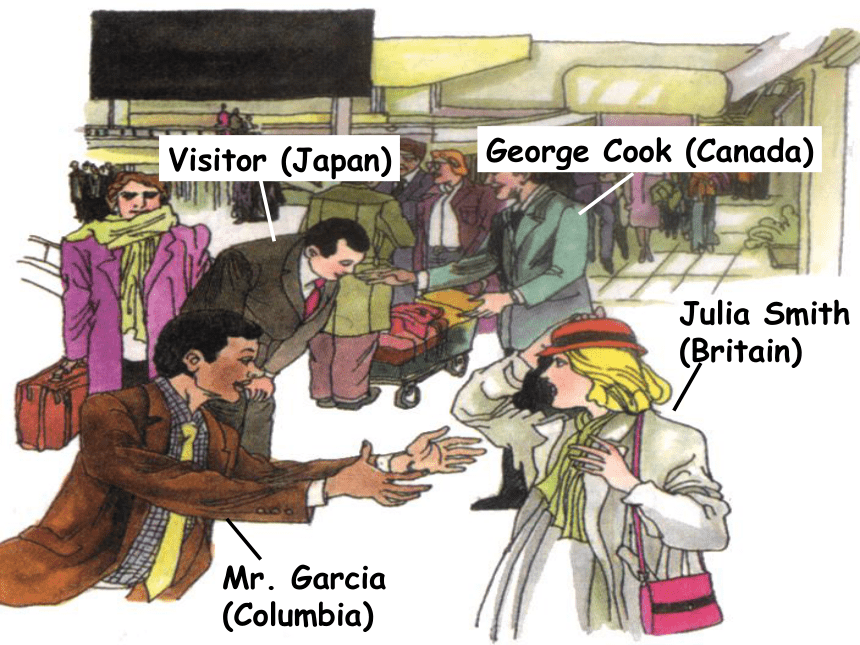

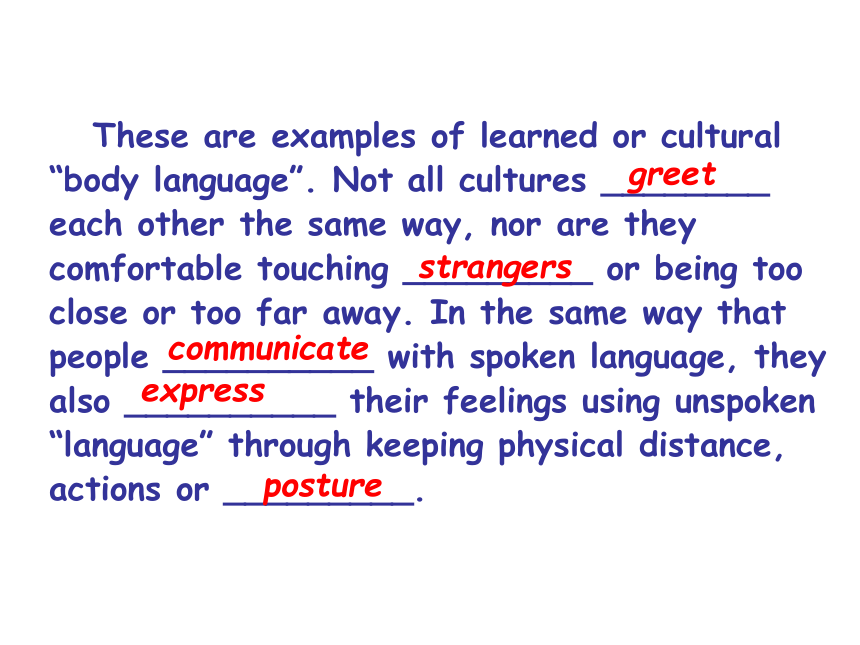

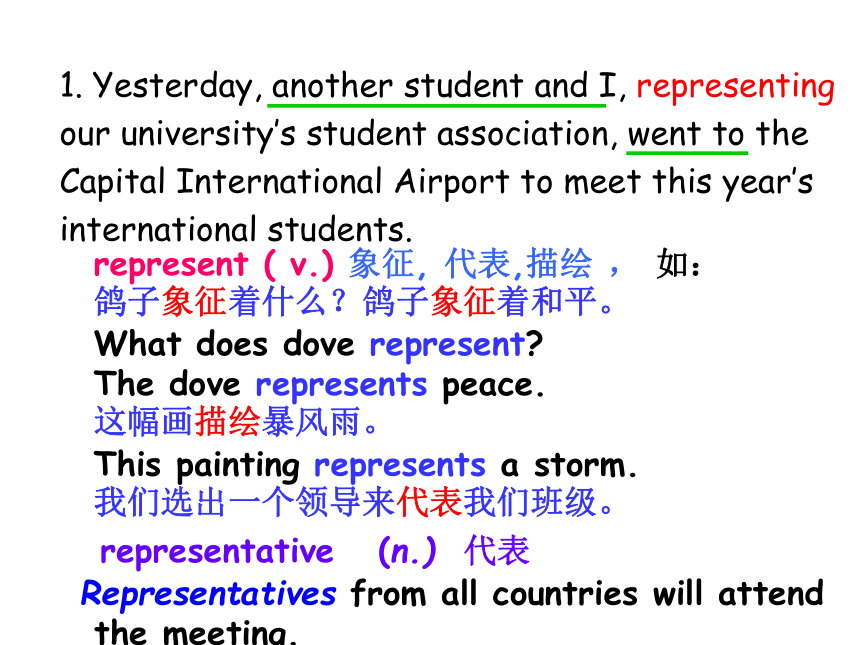
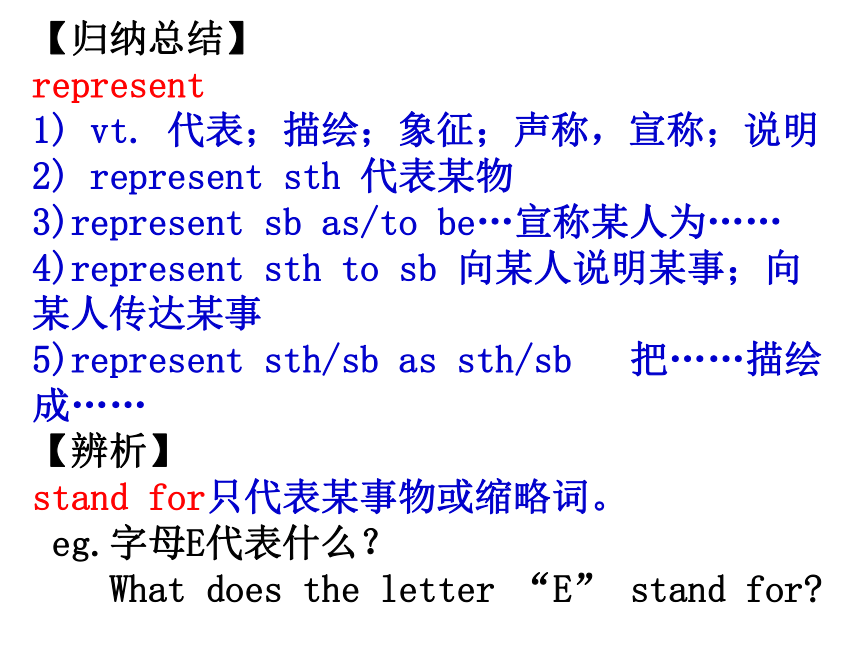
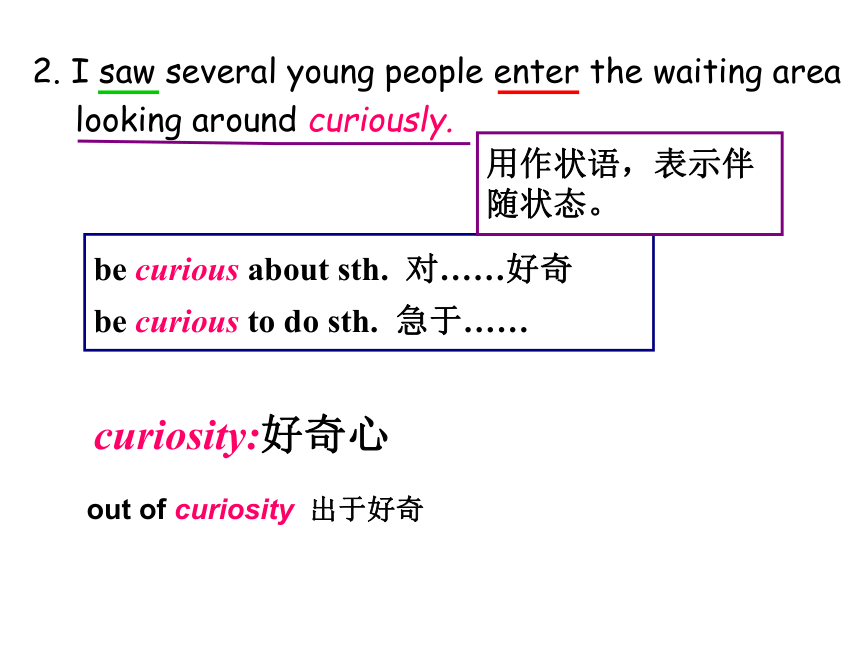
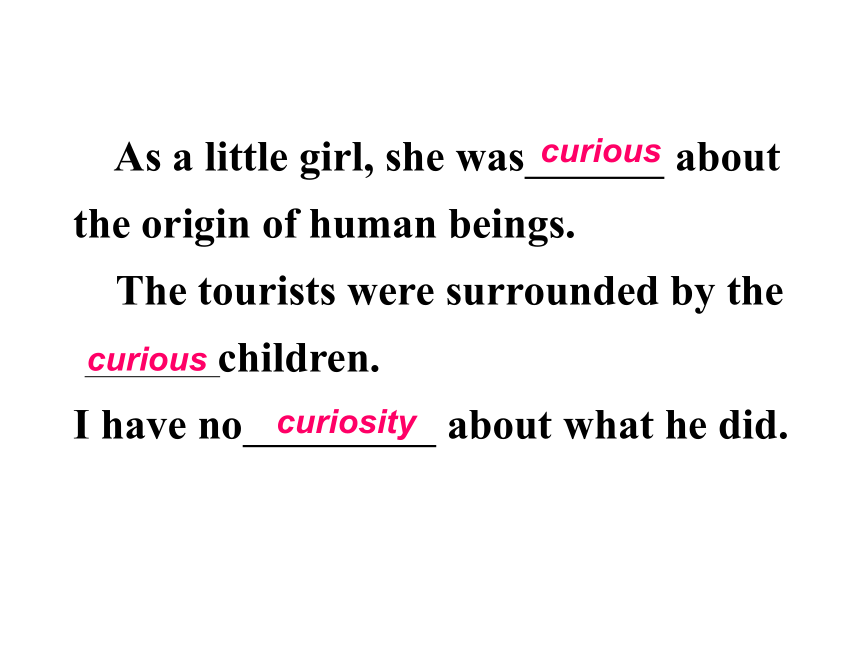
文档简介
Language points
Communication:
No problem?
Mr. Garcia (Columbia)
Julia Smith (Britain)
Visitor (Japan)
George Cook (Canada)
The first person who arrives is Mr. Garcia from Columbia, closely _________ by Julia Smith from Britain. When they are introduced to each other, Mr.Garcia approaches Ms Smith, _______ her shoulder and _______ her on the cheek . Ms Smith steps back appearing surprised. The visitor from Japan comes in smiling at the same time as George Cook from Canada. As they are introduced, Mr. Cook _______ his hand out to the Japanese who ______ . His nose touches Mr. Cook’s moving hand, and they both _________.
followed
touches
kisses
reaches
bows
apologize
These are examples of learned or cultural “body language”. Not all cultures ________ each other the same way, nor are they comfortable touching _________ or being too close or too far away. In the same way that people __________ with spoken language, they also __________ their feelings using unspoken “language” through keeping physical distance, actions or _________.
express
communicate
strangers
greet
posture
Summary :
Body language varies from culture to culture. Not all members of all cultures behave the same way. We should try to grasp and respect each other’s culture in order to make good communication.
1. Yesterday, another student and I, representing our university’s student association, went to the Capital International Airport to meet this year’s international students.
represent ( v.) 象征, 代表,描绘 , 如:
鸽子象征着什么?鸽子象征着和平。
What does dove represent?
The dove represents peace.
这幅画描绘暴风雨。
This painting represents a storm.
我们选出一个领导来代表我们班级。
representative (n.) 代表
Representatives from all countries will attend
the meeting.
【归纳总结】
represent
1) vt. 代表;描绘;象征;声称,宣称;说明
2) represent sth 代表某物
3)represent sb as/to be…宣称某人为…… 4)represent sth to sb 向某人说明某事;向某人传达某事
5)represent sth/sb as sth/sb 把……描绘成……
【辨析】
stand for只代表某事物或缩略词。
eg.字母E代表什么?
What does the letter “E” stand for?
2. I saw several young people enter the waiting area looking around curiously.
be curious about sth. 对……好奇
be curious to do sth. 急于……
用作状语,表示伴随状态。
out of curiosity 出于好奇
curiosity:好奇心
As a little girl, she was about the origin of human beings.
The tourists were surrounded by the curious children.
I have no about what he did.
curious
curious
curiosity
3. The first person to arrive was Tony Garcia from Colombia, closely followed by Julia Smith from Britain.
the first person to arrive “第一个到达的人”
被动关系
The last one ____ pays the meal.
Agreed.
A. arrived B. arrives C. to arrive D. arriving
C
他走进房间,后面跟着他的家人。
He entered the room, followed by the rest of the family.
他走进房间,跟着他的家人。
He entered the room, following the rest of the family.
4. Tony approached Julia, touched her shoulder and kissed her on the cheek.
(1) approach v. & n. “接近 ”
期末考临近了。
The final exam is approaching.
(2) n. 方法;步骤;通路;通道
The approach of summer brings warm weather.
We have found a new approach to the study of English.
1)The __________ of summer brings hot weather.
2)Summer vocation is _________. I can’t wait to go back home.
A. coming B. on the way
C. approaching D. A, B and C
approach
kiss sb. on the cheek 亲吻某人的面颊
v.+ sb. in/ on/ by + the 身体部位
他抓住我的手臂,我就一拳打在他脸上。
He caught me by the arm, so I hit him in the face.
____ apple fell from the tree and hit him on _____head.(2008浙江)
A. An,the B. The,the C. An,不填 D. The ,不填
7. She stepped back appearing surprised and put up her hands, as if in defence.
appearing surprised在这里用作状语。
The high wall was built as a defence against intruders. [C]
A lot of money is spent on defence. [U]
defence n. 防御;保卫
defend v. 保护;保卫
Chinese people defended against the Japanese army during World War 2.
in defence自卫,防御
in defence of 保卫…,为…辩护
defend…against / from 保卫…以免受
defend oneself自卫,为自己辩解
The young man joined the army in defence of his country.
Soldiers should defend their country against the enemies.
introduce v. “介绍,引入”
introduce sb to sb “向某人介绍某人“
introduce … into/to “把…引进到…”
introduction n. “介绍,引入”
a major misunderstanding “一个大误会”
major adj. “较大的,主要的”
a major road 主干道
v. “主修(科目)”。 major in …
我毕业于北京大学中文系。
I graduated from Peking University majoring in Chinese
apologize v. “道歉”
apologize to sb. for sth. / doing sth.
apology n.
make an apology to sb. for (doing) sth.
Victor apologized for ____ to inform me of the change in the plan.
his being not able B. him not to be able
C. his not being able D. him to be not able
C
5. Not all cultures greet each other the same way, nor are they comfortable in the same way with touching or distance between people.
部分否定
not 与all, both, every, everyone, everything等连用时,无论not位于这些词的前面还是后面,意为“并非所有的… …都… …”
全部否定---none, neither, no one, nothing等
Everyone is not here.
“并不是人人都在这”
“没有人在这”
Nobody is here.
nor / neither 否定副词, 常置于句首, 句子要倒装, 即助动词/系动词/情态动词放在主语之前
I don’t like her, nor/neither does Lily.
I am not a nurse, nor/ neither is Lily.
1. We haven’t enough books for ____; some of you will have to share.
somebody B. anybody C. everybody D. nobody
2. Bill wasn’t happy about the delay of the report by Jason, and ____ .
I was neither B. neither was I
C. I was either D. either was I
C
B
6. However, people from places like Spain, Italy or South American countries approach others closely and are more likely to touch them.
be likely to do … “很可能做某事”
= It is likely that …
他很可能会成功
He is likely to succeed.
It is likely that he will succeed.
1)Look, dark clouds are gathering. It is ______ to rain soon.
A. probable B. possible
C. likely D. perhaps
2)I think he is ______ to win, but I’m not sure.
A. possible B. likely
C. probable D. certain
3)I advise you to learn a second language.
Me? ______! I’m too slow.
A. Not likely B. No problem
C. As possible D. Surely
7. In general, though, studying international customs can certainly help avoid difficulties in today’s world of cultural crossroads.
in general “总的来说, 通常”=generally speaking
In general, what he said didn’t come to the point.
avoid + n. / doing “避免…”
还有哪些动词带doing作宾语?
避免,错过,少延期
建议,完成,多练习
喜欢,想象,禁不住
承认,拒绝,与嫉妒
逃避,冒险,莫原谅
忍受,保持,不介意
带doing作宾语的动词
avoid, miss, put off
suggest, finish, practise
enjoy, imagine, can’t help
admit, deny, envy
escape, risk, excuse
stand, keep, mind
There is a story here in the paper about a 110-year-old man.
My goodness! I can’t imagine ____ that old.
A. to be B. to have been
C. being D. having been
C
Homework
1.
Communication:
No problem?
Mr. Garcia (Columbia)
Julia Smith (Britain)
Visitor (Japan)
George Cook (Canada)
The first person who arrives is Mr. Garcia from Columbia, closely _________ by Julia Smith from Britain. When they are introduced to each other, Mr.Garcia approaches Ms Smith, _______ her shoulder and _______ her on the cheek . Ms Smith steps back appearing surprised. The visitor from Japan comes in smiling at the same time as George Cook from Canada. As they are introduced, Mr. Cook _______ his hand out to the Japanese who ______ . His nose touches Mr. Cook’s moving hand, and they both _________.
followed
touches
kisses
reaches
bows
apologize
These are examples of learned or cultural “body language”. Not all cultures ________ each other the same way, nor are they comfortable touching _________ or being too close or too far away. In the same way that people __________ with spoken language, they also __________ their feelings using unspoken “language” through keeping physical distance, actions or _________.
express
communicate
strangers
greet
posture
Summary :
Body language varies from culture to culture. Not all members of all cultures behave the same way. We should try to grasp and respect each other’s culture in order to make good communication.
1. Yesterday, another student and I, representing our university’s student association, went to the Capital International Airport to meet this year’s international students.
represent ( v.) 象征, 代表,描绘 , 如:
鸽子象征着什么?鸽子象征着和平。
What does dove represent?
The dove represents peace.
这幅画描绘暴风雨。
This painting represents a storm.
我们选出一个领导来代表我们班级。
representative (n.) 代表
Representatives from all countries will attend
the meeting.
【归纳总结】
represent
1) vt. 代表;描绘;象征;声称,宣称;说明
2) represent sth 代表某物
3)represent sb as/to be…宣称某人为…… 4)represent sth to sb 向某人说明某事;向某人传达某事
5)represent sth/sb as sth/sb 把……描绘成……
【辨析】
stand for只代表某事物或缩略词。
eg.字母E代表什么?
What does the letter “E” stand for?
2. I saw several young people enter the waiting area looking around curiously.
be curious about sth. 对……好奇
be curious to do sth. 急于……
用作状语,表示伴随状态。
out of curiosity 出于好奇
curiosity:好奇心
As a little girl, she was about the origin of human beings.
The tourists were surrounded by the curious children.
I have no about what he did.
curious
curious
curiosity
3. The first person to arrive was Tony Garcia from Colombia, closely followed by Julia Smith from Britain.
the first person to arrive “第一个到达的人”
被动关系
The last one ____ pays the meal.
Agreed.
A. arrived B. arrives C. to arrive D. arriving
C
他走进房间,后面跟着他的家人。
He entered the room, followed by the rest of the family.
他走进房间,跟着他的家人。
He entered the room, following the rest of the family.
4. Tony approached Julia, touched her shoulder and kissed her on the cheek.
(1) approach v. & n. “接近 ”
期末考临近了。
The final exam is approaching.
(2) n. 方法;步骤;通路;通道
The approach of summer brings warm weather.
We have found a new approach to the study of English.
1)The __________ of summer brings hot weather.
2)Summer vocation is _________. I can’t wait to go back home.
A. coming B. on the way
C. approaching D. A, B and C
approach
kiss sb. on the cheek 亲吻某人的面颊
v.+ sb. in/ on/ by + the 身体部位
他抓住我的手臂,我就一拳打在他脸上。
He caught me by the arm, so I hit him in the face.
____ apple fell from the tree and hit him on _____head.(2008浙江)
A. An,the B. The,the C. An,不填 D. The ,不填
7. She stepped back appearing surprised and put up her hands, as if in defence.
appearing surprised在这里用作状语。
The high wall was built as a defence against intruders. [C]
A lot of money is spent on defence. [U]
defence n. 防御;保卫
defend v. 保护;保卫
Chinese people defended against the Japanese army during World War 2.
in defence自卫,防御
in defence of 保卫…,为…辩护
defend…against / from 保卫…以免受
defend oneself自卫,为自己辩解
The young man joined the army in defence of his country.
Soldiers should defend their country against the enemies.
introduce v. “介绍,引入”
introduce sb to sb “向某人介绍某人“
introduce … into/to “把…引进到…”
introduction n. “介绍,引入”
a major misunderstanding “一个大误会”
major adj. “较大的,主要的”
a major road 主干道
v. “主修(科目)”。 major in …
我毕业于北京大学中文系。
I graduated from Peking University majoring in Chinese
apologize v. “道歉”
apologize to sb. for sth. / doing sth.
apology n.
make an apology to sb. for (doing) sth.
Victor apologized for ____ to inform me of the change in the plan.
his being not able B. him not to be able
C. his not being able D. him to be not able
C
5. Not all cultures greet each other the same way, nor are they comfortable in the same way with touching or distance between people.
部分否定
not 与all, both, every, everyone, everything等连用时,无论not位于这些词的前面还是后面,意为“并非所有的… …都… …”
全部否定---none, neither, no one, nothing等
Everyone is not here.
“并不是人人都在这”
“没有人在这”
Nobody is here.
nor / neither 否定副词, 常置于句首, 句子要倒装, 即助动词/系动词/情态动词放在主语之前
I don’t like her, nor/neither does Lily.
I am not a nurse, nor/ neither is Lily.
1. We haven’t enough books for ____; some of you will have to share.
somebody B. anybody C. everybody D. nobody
2. Bill wasn’t happy about the delay of the report by Jason, and ____ .
I was neither B. neither was I
C. I was either D. either was I
C
B
6. However, people from places like Spain, Italy or South American countries approach others closely and are more likely to touch them.
be likely to do … “很可能做某事”
= It is likely that …
他很可能会成功
He is likely to succeed.
It is likely that he will succeed.
1)Look, dark clouds are gathering. It is ______ to rain soon.
A. probable B. possible
C. likely D. perhaps
2)I think he is ______ to win, but I’m not sure.
A. possible B. likely
C. probable D. certain
3)I advise you to learn a second language.
Me? ______! I’m too slow.
A. Not likely B. No problem
C. As possible D. Surely
7. In general, though, studying international customs can certainly help avoid difficulties in today’s world of cultural crossroads.
in general “总的来说, 通常”=generally speaking
In general, what he said didn’t come to the point.
avoid + n. / doing “避免…”
还有哪些动词带doing作宾语?
避免,错过,少延期
建议,完成,多练习
喜欢,想象,禁不住
承认,拒绝,与嫉妒
逃避,冒险,莫原谅
忍受,保持,不介意
带doing作宾语的动词
avoid, miss, put off
suggest, finish, practise
enjoy, imagine, can’t help
admit, deny, envy
escape, risk, excuse
stand, keep, mind
There is a story here in the paper about a 110-year-old man.
My goodness! I can’t imagine ____ that old.
A. to be B. to have been
C. being D. having been
C
Homework
1.
同课章节目录
